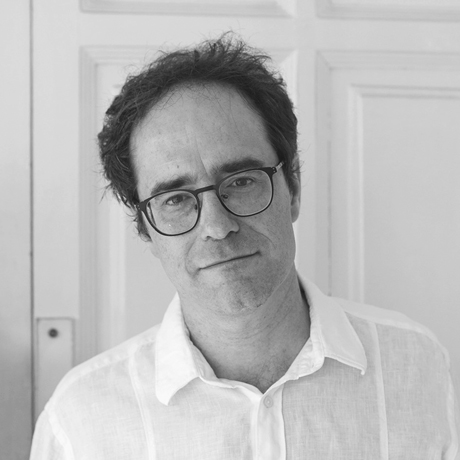Between languages and literatures
- Culture Folder
- Debate
- Apr 19
- 14 mins

We have asked Barcelona authors who write in Catalan and/or in Spanish whether they believe that the Barcelona in novels differs at all if one language or the other is used. Do they speak of the same city or do they adopt a different approach to writing about it? Does the language they employ influence them when it comes to portraying Barcelona?
This year Barcelona shall be the guest city at the Buenos Aires International Book Fair, from 23 April to 13 May, which is one of the foremost cultural events in Latin America. María Teresa Carbano, president of the El Libro Foundation, which is organising this fair, declared a number of weeks ago in Barcelona that the Buenos Aires Fair holds a city’s bilingual status in high esteem, which shall bring authors from two co-existing literatures to Argentina.
There is a widespread feeling that authors who write in Catalan and those who write in Spanish have relatively little contact with one another. They tend to live in two parallel realities that do not converge and they do not always read each other’s work. We have asked them whether they share this perception.
The discussion is rounded off with articles by Gabi Martínez, Isabel Sucunza and Jordi Puntí, three authors that explore the points of intersection and divergence between these two literary traditions and communities from different perspectives.
Gabi Martínez observes how the protagonists in Spanish-language novels set in Barcelona emerge from marginalised neighbourhoods and are christened with nicknames or diminutives. Isabel Sucunza draws an interesting comparison between the presence of gardens in several authors’ novels; in works written in Catalan, Sucunza notes that the city is set up as an invasive character. For Jordi Puntí, Barcelona’s ambiguity begins with maps. They lead us to believe that when we are looking for the sea we descend from north to south. The literature that has portrayed Barcelona is often a vertical path, hence between a north and a south that are misleading, but which have taken on this symbolic role.
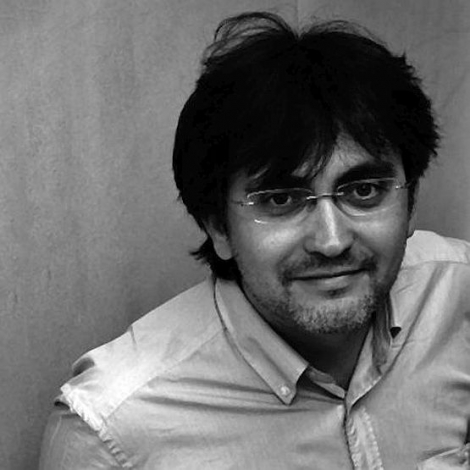
GONZALO TORNÉ. (Barcelona, 1976). Writer, translator, columnist and external editor for large publishing companies. He is the author of four novels.
I think that we are very alike for a “wrong” reason: for most, the city is just a backdrop, a series of prestigious names. Of course, magnificent literature can be penned without the tensions surrounding the city’s identity, culture and society surfacing, but having a broader perspective that extends beyond a sentimental account of someone’s own experience would be more than welcome. The choice of language, the location on the literary map (writing about Barcelona if you are a local is not the same as if you come from Reus), how one interacts with colleagues in the other language, the feelings of inferiority or superiority, grudges, mutual incomprehension... All in all, it would prove really interesting. And also if tensions surrounding class, education, purchasing power... were to rise to the surface.
Yes, I get the impression that there is little contact between them. But what surprises me most is that it is “in the city”; I find it more normal not to find out what is written in Lleida or what is written in Castelló. And it’s a complex matter, because it depends largely on each individual. The presentation of my latest book was attended by more Catalan-language authors than Spanish-language writers, and alongside Jordi Puntí there were a few of us Spanish-language authors. Choosing what to read is something of an enigma, a haphazard affair. In my case, an emotional interest guides me: I read people with whom I share some connection (sometimes very distant) or that I like, people who broaden the spectrum of your reading with their own interests.
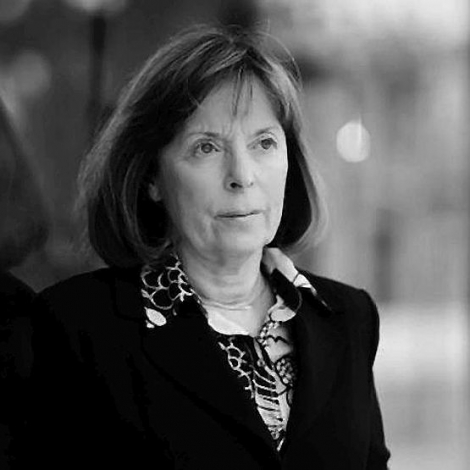
NORA CATELLI. (Rosario, Argentina, 1943). Writer, essayist and literary critic who has lived in Barcelona since 1976. Emeritus Professor of Literary Theory and Comparative Literature at the Universitat de Barcelona.
It is not only novelists who build the space of the city. After Baudelaire, mostly poets and journalists do it. Another thing is if, in a bilingual context, the language we choose, in any genre, bears an influence. The big question is: how can you be a writer and choose just one language when the subject is a city where the two language overlap? Writing exclusively in one of the two languages is a necessary artifice; I would say vital for Catalan, which can rarely be eliminated. Some new-generation writers wish to mix registers. We'll see what the outcome is.
Vis-à-vis the publishing market, the position of one language and the other is completely different, and this makes Barcelona literary society have parallel circuits. It would be interesting for there to be more cross-criticism, especially on the part of Spanish literature, which tends not to take care of Catalan literature, while the latter is much more receptive. But this hinges on the leverage of the national languages themselves, which in the peninsula have an asymmetrical relationship, since Spanish shifts the scales.
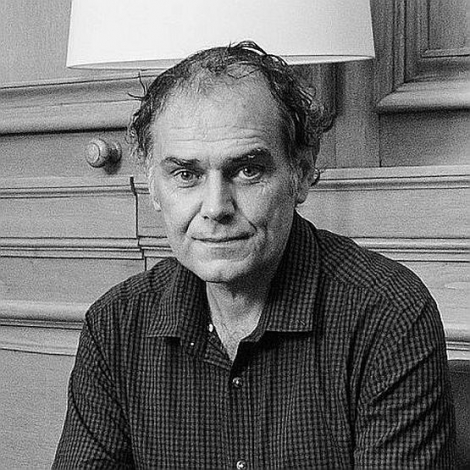
JAVIER PÉREZ ANDÚJAR. (Sant Adrià de Besòs, 1965). Writer and columnist. He received the Ciutat de Barcelona media award in 2014 for his features in the Catalan edition of El País.
The language influences me when I write, because I somehow write for the language. For the words. For the sentence. I listen to it, I hear its sound and I hear it breathe, and I make it my core working material. It is not a language that sets the novels of Barcelona apart. There is only one Barcelona, the one belonging to each individual, and everyone experiences and describes it in their own way. And, combined, they make up Barcelona. From Juli Vallmitjana to Juan Marsé. From Paco Candel to Quim Monzó. From Carmen Laforet to Najat el Hachmi. From Mercè Rodoreda to Manuel Vázquez Montalbán.
I have little interaction with literary life, but within the interaction – which is always more personal than going to soirées – there are female and male authors who express themselves in both languages. Perhaps in the past, when publishers and newspapers only published in one language or the other, hermetic compartments could be created, but now writers of both languages exist side by side within a publishing house, a magazine, a daily newspaper, awards, events and festivals, and that ends up uniting them. Then there are small groups and literary circles, but that is literary life. It holds no other importance and just ends up defining a literature.

M. ÀNGELS CABRÉ. (Barcelona, 1968). Writer, literary critic and director of the Cultural Gender Observatory.
A local language, in this case Catalan, should provide a closer look at the local reality, that is, Barcelona. And a language of broader scope, let’s say a more colonising language, Spanish, needs to take a step back. I fear the reality contradicts the theory. No, I don’t think that the vision of Barcelona offered by the writer Roser Caminals, who writes in Catalan from the United States, is considerably more intimate than that of Marsé’s works, who writes in Spanish about the Guinardó neighbourhood in Barcelona. Nor do I think that the Spanish we write here is very similar to that of Pío Baroja or Carmen Martín Gaite. The difference does not reside in the language, but in the place that each writer or writer grants it. It has more to do with the sense of belonging to a place, which is personal and non-transferable, than with the choice of language.
Works in both languages seem to exist in two parallel worlds that rarely intertwine. It has always astounded and concerned me: I think it is unhealthy. It is not a reality that has emerged spontaneously – after all, they are neighbours, university classmates, even friends – nor is it the result of mutual distrust, but the outcome of a cultural world that divides them and puts them on two sides. On the one hand, the publishing world (with teams differentiated by language) encourages segregation; and, on the other hand, institutions (with public aid, the organisation of festivals, etc.) top it off. If the two traditions intertwined more often, our literary ecosystem would be intellectually much richer and industrially more powerful.

JENN DÍAZ. (Barcelona, 1988). Writer and deputy in the Parliament of Catalonia. She is the author of novels in Spanish and Catalan.
If there’s any difference between Barcelona authors in Catalan or Spanish I don’t think that it is as much to do with the language as with the references each one has. I wouldn’t talk about differences due to language, and I’d speak more about individual cases. Since I never broach the topic of cities in my novels, I wouldn’t know how to answer. At any rate, I live my life and my writing in a fully bilingual manner, so I cannot say whether it affects me or not in literature: in any event, just like in life.
For a long time the Catalan literary circuit was in the minority and circulated as minority languages and cultures do. The Spanish circuit, as the dominant language and culture, occupied most spaces, and for years I’ve believed that we have followed this inertia, although the Catalan language and culture have an equal or higher status than contemporary Spanish culture today. I also think that there are few spaces that force us to mingle. In Barcelona La Calders bookshop organises all sorts of events, and you can often find people from both circuits there. It is the best image of the city we can offer: Catalan and Spanish flowing naturally, with no hang-ups.

KIKO AMAT. (Sant Boi de Llobregat, 1971). Writer, journalist and music critic. Since 2011, he has co-directed the Primera Persona Festival at the Barcelona Contemporary Culture Centre (CCCB).
I do think it is indeed different. I think that most authors who write in Catalan are inclined not to delve into certain landscapes and settings (the periphery and dodgy neighbourhoods) like some authors do in Spanish, albeit in dribs and drabs. A notable exception would be Maria Guasch, who speaks of the Llobregat delta and the waterfront suburbs. Generally speaking, to me, these areas seem to be unexplored by Barcelona novelists, especially those who write in Catalan. I imagine the language can also bear an influence when it comes to portraying them. You cannot set a story in the Sant Adrià district and make everyone speak in Catalan; it would be absurd and unrealistic. I admit that all my characters speak in Spanish, which is also contrived. In contrast, Carlos Zanón integrates Catalan into his novels in Spanish, but it does not come to me naturally.
The interface between authors can be emotional or friendship-based, even marital; we may meet occasionally at soirées where canapés can be scrounged, but I think that artistically it is The Great Divide. Work-related contact is almost non-existent between the two worlds. I virtually don’t have any interaction with authors in Spanish, so maybe I’m not the best one to talk about the issue, nor can I point out why this happens.
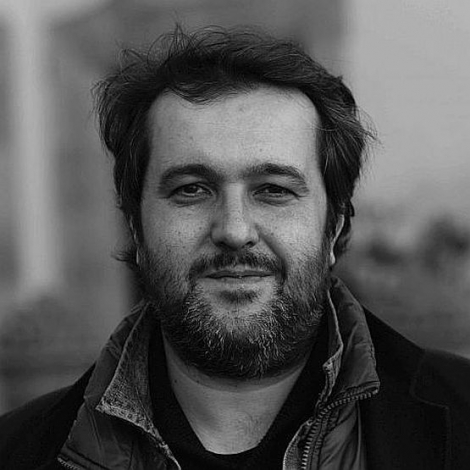
ÁLVARO COLOMER. (Barcelona, 1973). Novelist and journalist. He received the International Award for Excellence in Journalism for the work Guardianes de la memoria [Guardians of Memory] (2007).
I don’t think writers in one language or the other speak of a different city. Spanish-language authors have read more Barcelona authors in Spanish than in Catalan, though the opposite does not hold true. Catalan-language authors have also read Spanish-language authors. Nevertheless, the Barcelona I perceive is the same one.
The language does not influence the manner in which the city is portrayed, but the way reality is perceived. My mother tongue is Spanish. My father (who was Catalan) passed away when I was very young, and I was raised in a Spanish-speaking environment. As a grown-up, I felt that not having experienced Catalan culture as a child was a hole in my life. Over the years I’ve tried to fill that hole, but childhood is childhood and nothing can replace it. I imagine that, in a way I cannot put into words, this wholly influences my entire vision of Barcelona.
A couple of years ago, when politics tainted everything, I was very concerned that literature would be affected by the political climate and that Spanish-language writers were somewhat shunned. Fortunately, this did not happen. For a time it seemed that they had been, but very soon writers demonstrated that literature was above politics, despite the Government of Catalonia’s efforts to separate them. And it is clear to me that the contempt shown by the Government of Catalonia towards Spanish culture in Catalonia could have been an issue if the writers of both languages had not turned their backs on this mindset. In this regard, I am very proud of the authors and very disillusioned with the Government of Catalonia.
“Spanish-language authors have read more Barcelona authors in Spanish than in Catalan, though the opposite does not hold true. Catalan-language authors have also read Spanish-language authors. Nevertheless, the Barcelona I perceive is the same one.” Álvaro Colomer, novelist and journalist
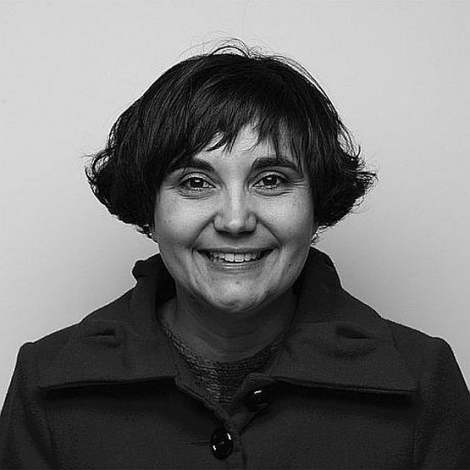
MARINA ESPASA. (Barcelona, 1973). Writer, literary critic and translator. Curator of the Barcelona City of Literature.
Beyond the class or neighbourhood origins of authors, which sometimes mean one and the same thing, I don’t believe that language is what decides which part or what social class of the city they are talking about when they write.
We can read “working class” novels both in Catalan (those of Sergi Pons Codina today, or those of Juli Vallmitjana a century ago, for example) and in Spanish (the latest one by Cristina Morales, to look no further, or the lifelong ones by Juan Marsé, to cite a prime example). And this so as not to open up the possibilities of other languages: you just have to remember the fascination the former District V, the “Xino” neighbourhood [currently El Raval], exerted for French authors Paul Morand and Jean Genet, or the attraction kindled by the outbreak of the Spanish Civil War for English and North-American authors, who penned memorable pages about the city such as those of George Orwell. I això per no obrir el meló de les altres llengües:
We also find novels about the upper classes in both languages: those of Porcel in Catalan, and those of Gonzalo Torné in Spanish. And a huge number of examples in-between that mix everything though they depict many different nooks and crannies in the city: the stories of Pàmies and Monzó, Mercè Ibarz’ short novels, Rodoreda’s Gràcia neighbourhood, the upper-class and lower-class neighbourhoods of Mendoza’s novels, and so on. There is a fantastic Barcelona too in some of the novels published by a publisher such as Les Males Herbes, or the most recent book by Javier Pérez Andújar, which includes the memory of an old local television programme about books and glimmers of other dimensions.

MERCÈ IBARZ. (Saidí, Baix Cinca, 1954). Writer and journalist, she has lived in Barcelona since 1971. She has published narratives and essays.
So many novels have been written about Barcelona and there are so many that I haven’t read, hence I can say little. Writing does not determine the description of the city or any other habitat or landscape. The working language is an internal music that the author seeks to convey to the reader: why should it condition more than the vision that shapes and constitutes the work? The language is also a document that informs, and that poeticises the styles, the nuances of each period and of the authors themselves, of the literary and cultural environment. Maybe the best communication between writers is to read each other’s work. It is up to researchers to ascertain whether the two linguistic-literary communities do so.

JULIÀ GUILLAMON. (Barcelona, 1962). Writer and literary critic. He received the Ciutat de Barcelona essay award in 2008.
There isn’t one Barcelona belonging to authors in Catalan and one to authors in Spanish: there are many. There are points of contact, related to theme or style, between Catalan-Catalan, Spanish-Catalan, Spanish-Spanish books, as well as differences.
In my youth some authors in Catalan and Spanish mingled at a number of bars. For years I’ve tried to go to bars where there aren’t any writers, so I cannot comment. It’s more or less as it always has been, with some authors who act as a shuttle between the two worlds. The issue of independence is indeed a boundary. But that’s another matter.

ENRIC GOMÀ. (Barcelona, 1963). Scriptwriter, writer and language promoter. He has published a book reflecting on language Control de plagues. 92 paraules catalanes per fumigar [Pest Control. 92 Catalan Words for Fumigating] (2018).
In contemporary authors, Barcelona is the same city, but the social settings portrayed according to the neighbourhood, economic, cultural, social class, and so on, are often different. The Sala Bagdad [a venue for erotic shows] differs to La Formiga Martinenca [a theatre] (I know that this isn’t news to anyone). Now, literature is a contrivance and the language – stylised and stretched out of shape at the same time – is at its service. Authors broach the city based on their experiences, and the living language (used in family, social, and cultural circles) differentiates them to an extent. There are those who feel they have inherited the Bruguera comics and others the homoerotic friendship of the comic Jep i Fidel. The conditioning factors are the experiences of each author (the language is only one element thereof) and their knowledge of the city (because many authors write about past times that they have not lived). A few decades ago it was said that some social classes with no prospects could only be captured in Spanish. Today, it isn’t quite certain, due to the social ladder, which is steadily getting shorter.
Relations between authors in Catalan and Spanish do not follow a single model; they depend on personalities, criteria, likes, the domain where they coincide, etc. Broadly speaking, the former aspire to participate in the instruments of prestige that favour the latter – although such mechanisms are dwindling day by day –, while the latter aspire to be more appreciated by the Government of Catalonia and to be applauded when they stroll through Ripoll.
The newsletter
Subscribe to our newsletter to keep up to date with Barcelona Metròpolis' new developments



